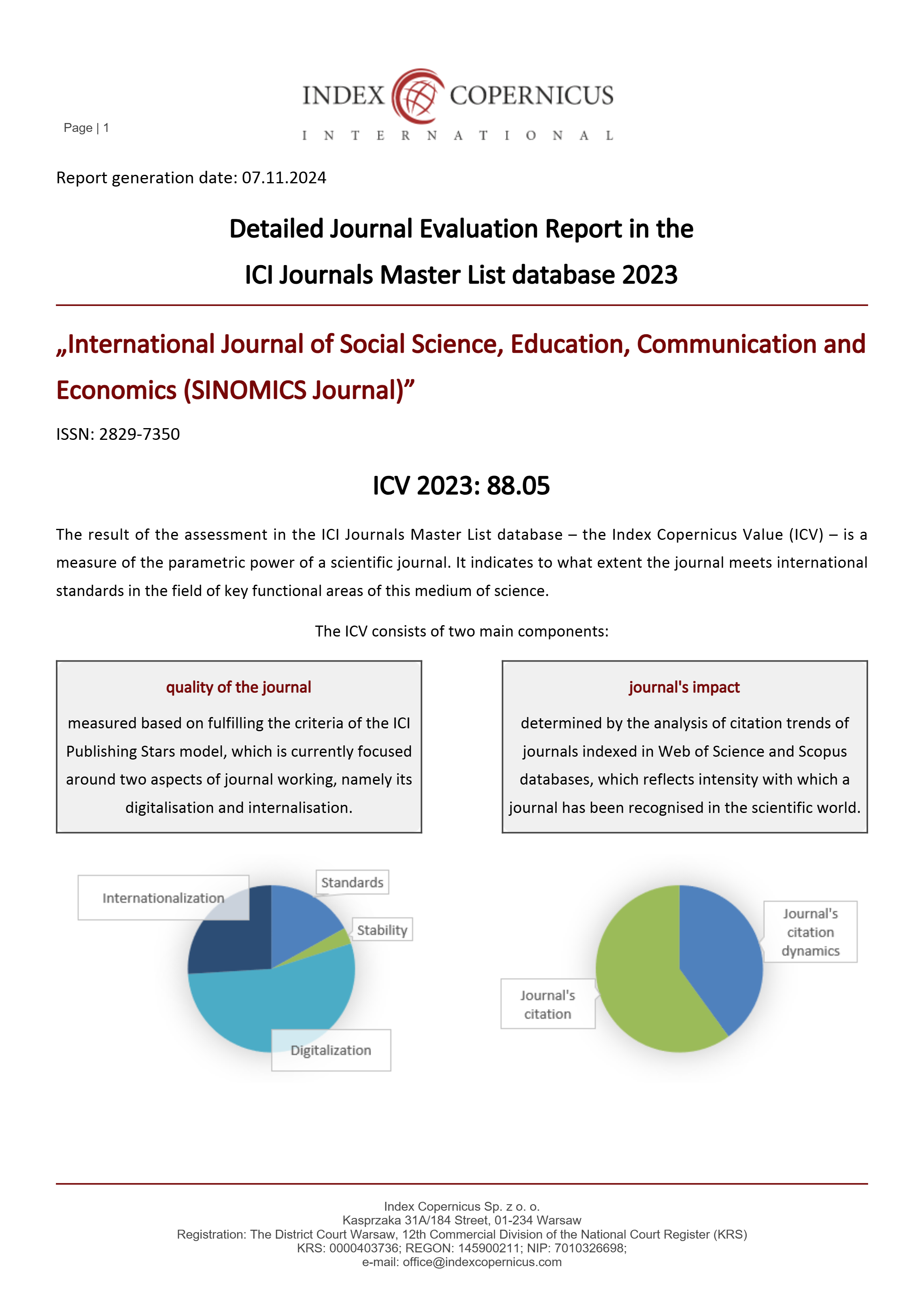The Contribution of Emphaty to Prosocial Behavior in Student Teaching Volunteers
Main Article Content
Khoirunnisa Virgiana Khan
Nurul Qomariyah
Students are required to implement their knowledge to the community, one of which is by becoming a teaching volunteer. Teaching activities carried out by students are a form of prosocial behavior. Prosocial behavior can be influenced by internal factors, one of which is empathy. The purpose of this study is to test empirically the contribution of empathy to prosocial behavior in students who become teaching volunteers. The sampling technique used in this study is non-probability sampling with purposive sampling technique. This study was conducted on 108 respondents with certain criteria, that is active students who became teaching volunteers for at least 1 month. Data collected by distributing questionnaires containing the respondents' identities and the research scale. The scale used in this study is a helping attitude scale and an empathy scale. The data analysis technique used to test the hypothesis in this research is a simple linear regression test. Based on the results of data analysis, the F value was 31.114; R square of 0.227 and a significance value of 0.000 (p <0.01). This shows that there is a very significant contribution from empathy to prosocial behavior in students who become teaching volunteers and empathy contributes to prosocial behavior by 22.7%, while the remaining 77.3% is influenced by other factors outside of research.
Aditya, R. (2021). Program kampus mengajar dibuka untuk mahasiswa akhir, ini keuntungannya. Url: https://www.suara.com/news/2021/03/15/200950/programkampus-mengajar-dibuka-untuk-mahasiswa-akhir-ini-keuntungannya (accessed on 03 Desember 2021).
Antariksawan, I. W., Lutfiana, I., Kresnayana, M. Y., Keytimu, Y. M. H., & Sundayana, I. M. (2021). Inovasi pembelajaran berbasis blended learning di keperawatan. Bandung: Media Sains Indonesia.
Aronson, E., Wilson, T. D., Fehr, B., & Akert, R. M. (2017). Social psychology sixth Canadian edition. Canada: Pearson.
Baron, R. A. & Branscombe, N. A. (2012). Social psychology thirteenth edition. New Jersey: Pearson Education, Inc.
Batson, C. D. & Powell, A. A. (2003). Altruism and prosocial behavior. In Weiner, I. B., Millon, T., & Lerner. M. J. (Eds). Handbook of psychology, 463-484. New Jersey: John Wiley & Sons, Inc.
Davis, M. H. (1980). A multidimensional approach to individual. JSAS Catalog of Selected Documents in Psychology, 10, 85.
Ipung. (2021). Gardian Muhammad, mahasiswa vokasi UNDIP pendiri gerakan mengajar desa. Url: https://vokasi.undip.ac.id/index.php/2021/06/17/gardian-muhammadmahasiswa-vokasi-undip-pendiri-gerakan-mengajar-desa/ (accessed on 04 Desember, 2021).
Kumparan, T. (2021). Komunitas kakak asuh, kumpulan mahasiswa yang peduli isu pendidikan. Url: https://kumparan.com/teman-kumparan/komunitas-kakak-asuhkumpulan-mahasiswa-yang-peduli-isu-pendidikan 1tGpSdOE3gW/full?ref=register (accessed on 04 Desember 2021).
Larasati, F. (2021). Hasil seleksi kampus mengajar Angkatan 2 tahun 2021. Url: https://lldikti13.kemdikbud.go.id/2021/08/04/hasil-seleksi-kampus-mengajarangkatan-2-tahun-2021/ (accessed on 04 Desember 2021).
Nickell, G. (1998). The helping attitudes scale. Paper Presented at 106th Annual Convention of The American Psychological Associaton at San Fransisco.
Parmana, T. L., Asmarany, A. I., & Saputra, M. (2019). Empati dan perilaku pada mahasiswa pengguna kereta rel listrik. Jurnal Psikologi, 12(1).
Rizki, A. M. (2018). 7 jalan mahasiswa. Sukabumi: Jejak.
Sarwono, S. W. & Meinarno, E. A. (2009). Psikologi sosial edisi 2. Jakarta: Salemba Humanika.
Staub, E. (1978). Positive social behavior and morality: Social and personal influences. San Fransisco: Academic Press.
Taufik. (2012). Empati: Pendekatan psikologi sosial. Jakarta: Rajawali Press.
Puspita, S. D. & Gumelar, G. (2014). Pengaruh empati terhadap perilaku prososial dalam berbagi ulang informasi atau retweet kegiatan sosial di jejaring sosial twitter. Jurnal Penelitian dan Pengukuran Psikologi, 3(1).
Umayah, A. N., Ariyanto, A., & Yustisia, W. (2017). Pengaruh empati emosional terhadap perilaku prososial yang dimoderasi oleh jenis kelamin pada mahasiswa. Jurnal Psikologi Sosial, 15(2), 72-83.
Wahyuni, R & Dimyati. (2019). Empathy as a predictor of prosocial behavior of nurses in the Special Region of Yogyakarta. Advances in Social Sciences, Education and Humanities Research, 326, 436-440.
Bailey, P. E., Brady, B., Ebner, N. C., & Ruffman, T. (2018). Effects of age on emotion regulation, emotional empathy, and prosocial behavior. The Journals of Gerontology Series B Psychological Sciences and Social Sciences, 75(4).
Hoffman, M. L. (2000). Empathy and moral development: Implications for caring and justice. New York: Cambridge University Press.










